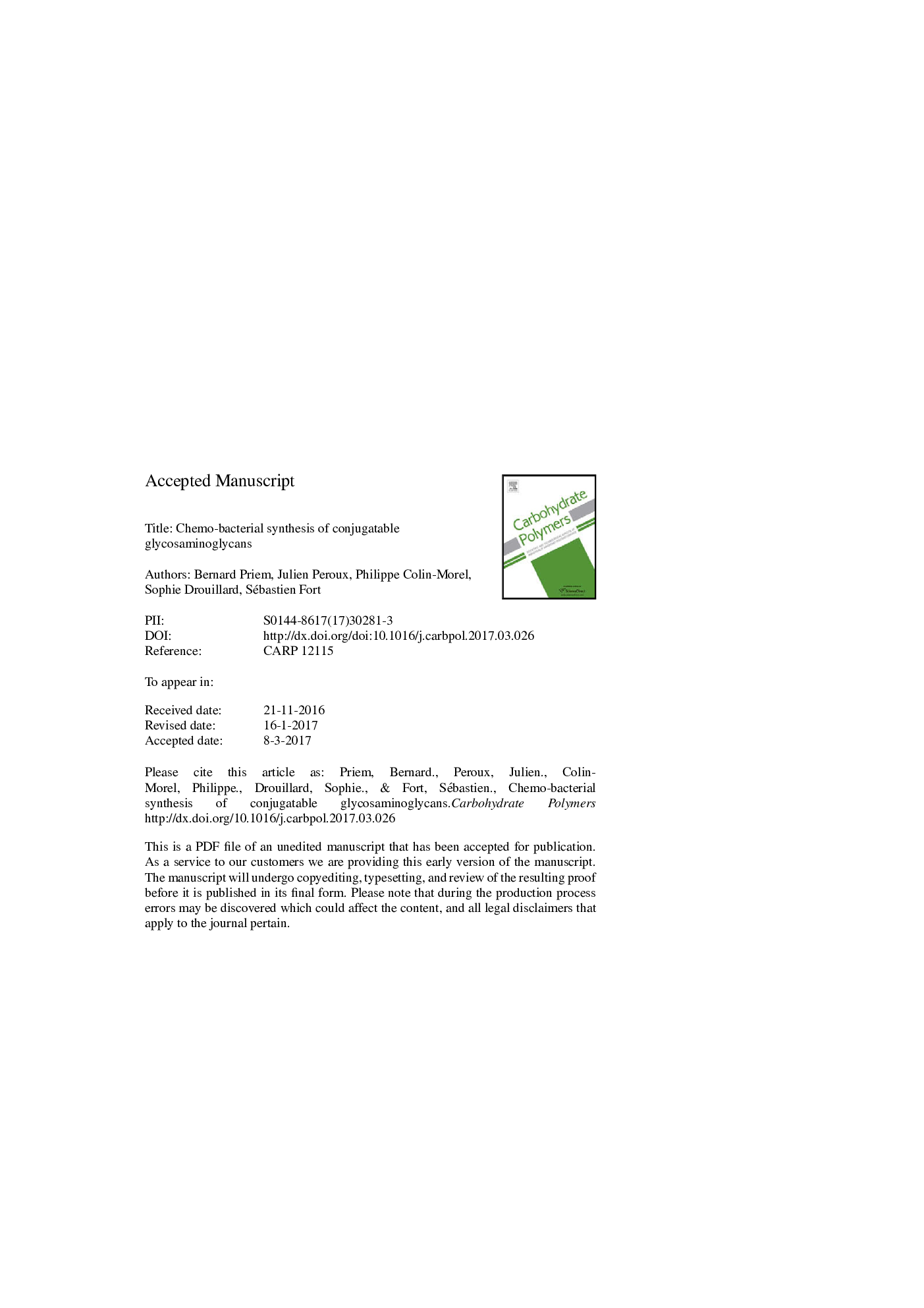| Article ID | Journal | Published Year | Pages | File Type |
|---|---|---|---|---|
| 5157687 | Carbohydrate Polymers | 2017 | 16 Pages |
Abstract
Conjugatable glycosaminoglycans hold promise for medical applications involving the vectorization of specific molecules. Here, we set out to produce bacterial chondroitin and heparosan from a conjugatable precursor using metabolically engineered Escherichia coli strains. The major barrier to this procedure was the glucuronylation of a lactosyl acceptor required for polymerization. To overcome this barrier, we designed E. coli strains expressing mouse β-1,3-glucuronyl transferase and E. coli K4 chondroitin and K5 heparosan synthases. These engineered strains were cultivated at high density in presence of a lactose-furyl precursor. Enzymatic polymerization occurred on the lactosyl precursor resulting in small chains ranging from 15 to 30 kDa that accumulated in the cytoplasm. Furyl-terminated polysaccharides were produced at a gram-per-liter scale, a yield similar to that reported for conventional strains. Their efficient conjugation using a Diels-Alder cycloaddition reaction in aqueous and catalyst-free conditions was also confirmed using N-methylmaleimide as model dienophile.
Related Topics
Physical Sciences and Engineering
Chemistry
Organic Chemistry
Authors
Bernard Priem, Julien Peroux, Philippe Colin-Morel, Sophie Drouillard, Sébastien Fort,
